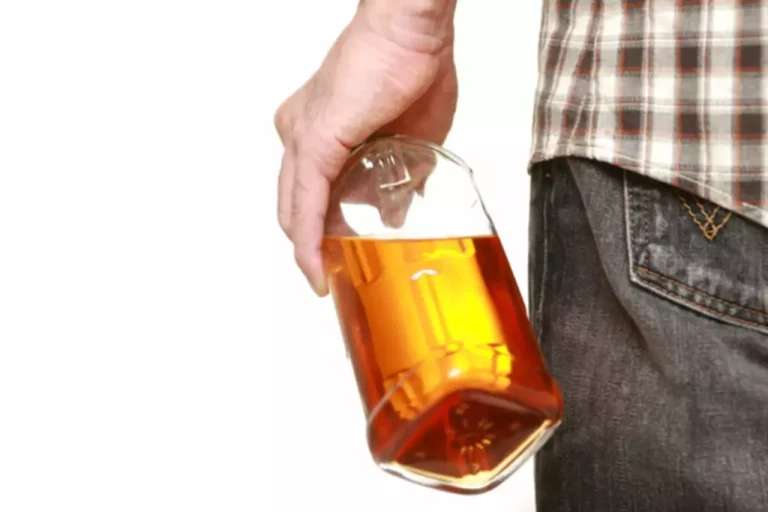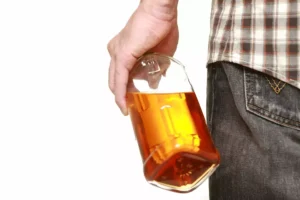
While some alcohol use may be permissible in certain situations, you should consult with a doctor or pharmacist about your specific situation. The blood-thinning effect of Lovenox is enhanced while using alcohol, increasing the risk of bleeding. It’s not recommended that you start drinking alcohol if you don’t normally.
Can you drink alcohol while taking Eliquis?

This can help reduce your risk of having a heart attack or stroke if you’re at risk. Since blood thinners make you less able to form clots, if you’re taking them, be extra careful when you do anything that could increase your chance of injury and bleeding. Given these potential risks, it is crucial for individuals on blood thinners to moderate their alcohol intake and consult with their healthcare provider for personalized advice. The National Institutes of Health also highlights the importance of understanding alcohol-medication interactions to prevent adverse health effects.
What happens if you drink alcohol on blood thinners?

Long-term alcohol use also can lead to an increased risk of developing arrhythmias, which are irregular heartbeats, as well as cardiomyopathy, a stretching or drooping of the heart. When structural changes take place, it affects how well the blood pumps blood throughout the rest of the body. The effects of alcohol consumption on blood pressure and heart rate can last up to 13 hours after drinking, and its effects on heart rate can last up to 24 hours after drinking. The effects of alcohol consumption on the blood are either short-term or long-term. Short-term effects happen to occur during or directly after consuming alcohol, and long-term effects are driven by excessive use over an extended period of time.
- Alcohol can increase your risk of stomach bleeding caused by aspirin and other NSAIDs.
- Anticoagulant blood thinners target various proteins in the coagulation cascade.
- Alcohol can also affect the action of platelets, which are the components of the blood that form clots.
- These products are highly concentrated and have greater biological effects relative to respective raw material sources.
- Moreover, alcohol can potentially augment and extend the effects of Eliquis as a blood thinner, thereby increasing the risk of bleeding.
- One of the oldest blood thinners still in widespread use is warfarin (Coumadin).
Health Challenges
Consuming alcohol can potentially interfere with the effectiveness of Eliquis. Moderate alcohol consumption can potentially impact the absorption rate of Eliquis in the body, consequently affecting the duration of the drug’s clot-preventing effectiveness and leading to an increased risk of bleeding. Despite their name, blood thinners (also called anticoagulants) don’t actually thin your blood. They work by keeping your blood from sticking together in a clump (clotting).

Xarelto and alcohol: can they be used together?
In relation to blood clotting, green tea has been reported to contain some vitamin K as well as antiplatelet polyphenols 7, 8, 26. Due to the presence of vitamin K, it is implicated in counteracting the effects anticoagulant drugs, such as warfarin, under certain conditions. Supporting this assertion, in a 44-year-old man on warfarin, a relatively high dose of green tea was found to reduce the INR from 3.79 to 1.37 63. The antiplatelet polyphenols in green tea, particularly catechin, have been reported to reduce or stop blood clot formation as a result of inhibition of arachidonic acid formation and thus TXA2 generation in platelets 26, 27.
Does alcohol thin the blood before surgery?
- Combine alcohol use and anticoagulants and there is an increased risk of bleeding.
- Blood thinner medications prevent blood from sticking together (coagulation) which increases the amount of time it …
- Alcohol should be limited while using Effient, especially among older adults.
- Alcohol consumption has a profound effect on various systems of the body, with the liver and brain being particularly vulnerable.
- This article discusses the effects that alcohol has on the blood in both the short and long term.
The risk of stroke is also elevated in individuals who have experienced multiple head injuries over their lifetime. Repeated brain injuries can lead to cumulative damage to the blood vessels in the brain, increasing the likelihood of a stroke. Additionally, multiple brain injuries may cause changes in blood flow and vessel function in the brain.

According to Cleveland Clinic, anticoagulants can either prevent clots from forming or help to break down existing beer and blood thinners clots, thereby safeguarding against life-threatening complications. Blood thinners are medications that help prevent blood clots from forming. They are prescribed to people with a heart rhythm disorder, such as atrial fibrillation, that can lead to a stroke. They are also used to prevent blood clots that may cause a heart attack or stroke. However, they can increase the risk of delayed intracranial hemorrhage after a head injury. Alcohol consumption can also have an impact on the effectiveness of certain blood thinners.
- This may include medications to reduce swelling and/or to counteract the effects of the blood thinners.
- And if you have an underlying health condition such as diabetes or kidney disease, ask your doctor whether it’s safe for you to drink at all.
- Your doctor will test you with an international normalized ratio (INR) test.
- However, this hypothesis awaits verification with experimental and/or clinical data.
Talk to Your Doctor

Blood clotting is an extremely important function of the body that prevents bleeding. Without blood clotting, a small cut would cause serious, prolonged bleeding. The Centers for Disease Control and Prevention (CDC) reports that the health benefits could be related to genetics and not to alcohol consumption at all. Just like the Dietary Guidelines, AHA and the CDC do not recommend alcohol consumption for individuals who do not already drink. They also encourage people who drink to do so in moderation in order to minimize some of the potential negative side effects of long-term alcohol use. Many people wonder whether alcohol has blood-thinning properties Drug rehabilitation and how it may interact with blood thinners.
Taking herbal supplements
- This is an irregular heartbeat that starts in the upper chambers of your heart.
- They can cause direct damage to the brain or lead to other complications, such as blood clots and internal bleeding, that may ultimately result in a stroke.
- For example, excessive alcohol intake may interfere with the metabolism of warfarin, potentially leading to either decreased effectiveness or increased risk of bleeding.
- However, the possibility of enhanced bleeding cannot be ruled out, particularly under certain circumstances, such as use of high doses in susceptible users.
However, the herb has not been observed to inhibit platelet aggregation in adult volunteers after 2 weeks of treatment. In the absence of coumarin compounds in saw palmetto and lack of demonstrable antiplatelet activity, the mechanism for the increased anticoagulant effect of warfarin by saw palmetto remains obscure. Despite this shortcoming, however, caution is advised if this herbal supplement is taken during surgical procedures and/or with blood-thinning medications, including NSAIDs.

